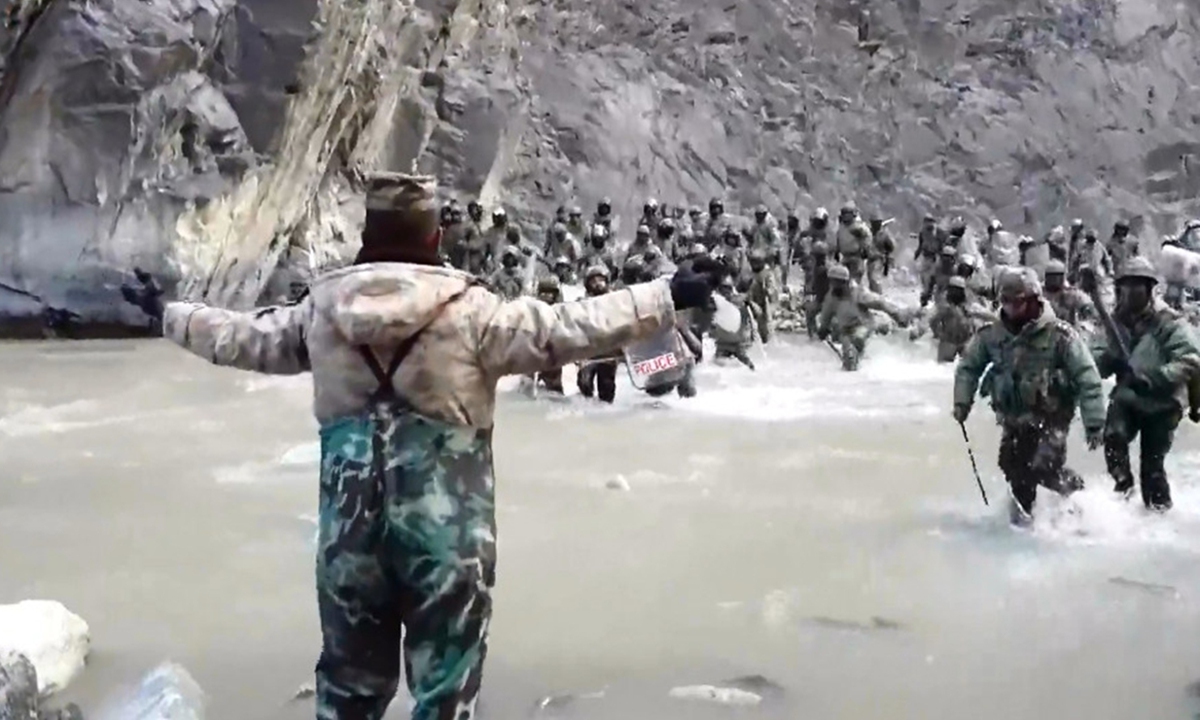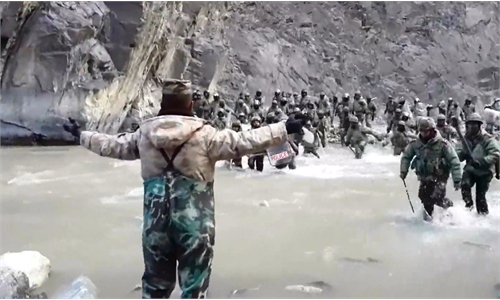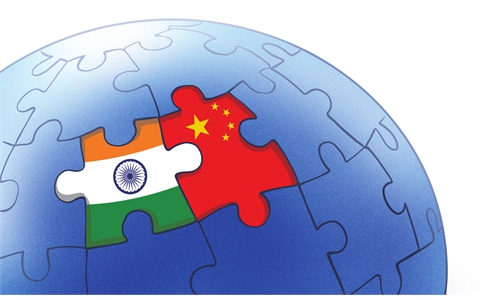
Photo: CCTV
As June 15 marks the first anniversary of the deadly Galwan Valley clash, there are many voices of remembrance in both the Chinese and Indian public opinion fields. The incident, which resulted in severe casualties, has had a profound impact on China-India relations and reshaped India's perception of China's state power and China's willingness to use such power to defend its territorial sovereignty. In the long run, it is a lesson India must learn to restore calm along the China-India border.India has been taking salami-slicing tactics for a long time to encroach on China's territory. It can be said that India paid the price last year with both principal and interest. The events from the conflict in Galwan Valley to the disengagement process on Pangong Lake sent a clear message that the People's Liberation Army (PLA) will not start a fight easily, but if it does, it will surely fight a victorious war.
After the conflict broke out, the PLA showed overwhelming advantage in its capability to stick to the achievements, the ability to deploy forces, and the participation level of modern science and technology in military operations. Although New Delhi was contentious, it did not dare take actions to further escalate the conflict, which enabled the negotiations between China and India to be carried out and achieved some results. The two sides then disengaged from contact in some border areas.
The conflict on Pangong Lake ignited ultra-nationalism in India, and Indian public opinion wasted no time to demonize China. The Indian government canceled a series of economic cooperation projects with China, including the refusal of Chinese companies to participate in the construction of India's 5G network and the permanent ban on 59 Chinese apps in June last year. India has also strengthened its participation in the US-led Quad mechanism and adopted a tough policy that if China does not make a concession on the border issue, it seems impossible to improve India-China relations. It is a sign of weakness, loss of morality and mania.
In contrast, China's performance is strong, confident and upright. China's counterattack in the border conflict last year was in line with its long-term strategy of active defense, gaining mastery by striking only after the enemy has struck, and using fair means before resorting to force. There's no turning back after PLA started to fight. A powerful and timely strike against the enemy will deter many attacks from the enemy. However, both sides should give top priority to maintaining regional stability. China is ready to open channels for closer cooperation between China and India, reduce border tensions and ease opposition between public opinions.
As an old Chinese saying goes, triumph comes when leaders and followers share the same goal. Chinese society has more rational patriotism than India does, so the solidarity of the country has been strengthened. China's policy toward India is firm and calm. It has sufficient sustainability, so the country can act composedly at any time. India had tried to "decouple" itself from China with anger. However, this is self-inflicted harm to New Delhi. India can't get rid of the gravitational field of China's economy, no matter whether it wants to develop its own economy or to improve its people's livelihood. For instance, in the face of the ravaging COVID-19 epidemic, New Delhi takes Beijing as the biggest provider of key resources such as oxygen generators.

Employees of the martyrs' cemetery in Luohe, Central China's Henan Province, on Sunday organize bouquets that local residents brought in honor of Wang Zhuoran, 24, who died in the Galwan Valley skirmish with India in June 2020. Photo: VCG
China respects all neighboring countries. India has annexed Sikkim, and it still controls Bhutan and coerces Nepal. But China has never done anything like that. Today, China has become the most powerful country in East Asia. Despite that, we are very cautious in handling disputes with other countries. We have the capability to fight but are wary of engaging in a fight, so China has not been involved in wars for many years. It is courageous not to do what you can do, but it takes great courage not to bully the weak. China generally wants mutual respect and mutually beneficial cooperation with India. We have no intention to "overwhelm" New Delhi.As India has suffered a crushing defeat in the Galwan Valley conflict, it now wants to exploit China-US rivalry and increase pressure on China by deteriorating its strategic relations with China and strengthening its strategic cooperation with the US, in a bid to force China to get soft toward the border issue and make concessions. This is naive. China will not strategically court India by discarding its own territory. India does not have the capital to engage in economic and trade consumption with China. It has never supported China in strategy. New Delhi severely overestimates its strategic leverage.
Let New Delhi gradually calm down. Much weaker than that of China, India's economy has been gravely damaged by the COVID-19 epidemic. "Decoupling" from China for geopolitical purposes will further impair India. India's China policy is not sustainable in the long run.



